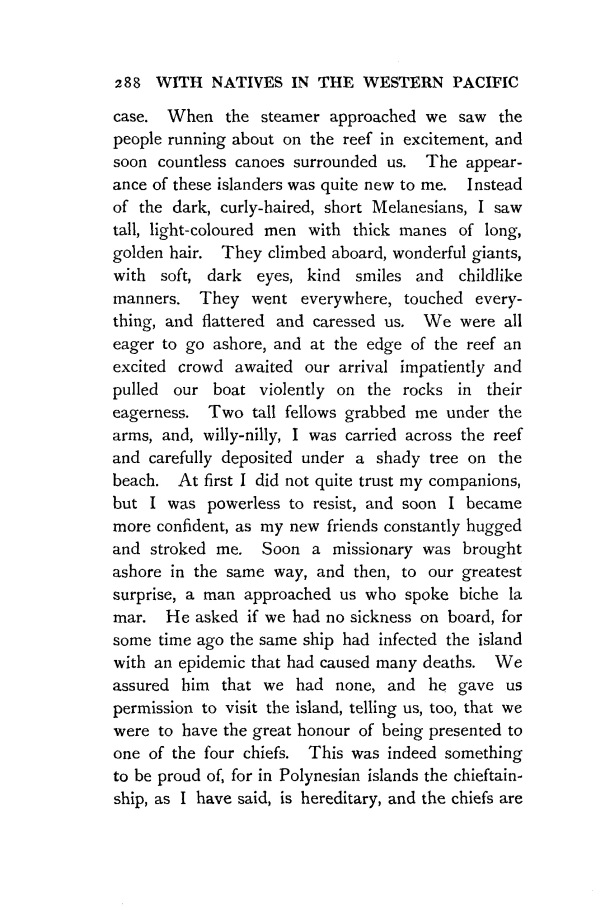|
|  [Note: this transcription was produced by an automatic OCR engine]
288 WITH NATIVES IN THE WESTERN PACIFIC
case. When the steamer approached we saw the
people running about on the reef in excitement, and
soon countless canoes surrounded us. The appear-
ance of these islanders was quite new to me. Instead
of the dark, curly-haired, short Melanesians, I saw
tall, light-coloured men with thick manes of long,
golden hair. They climbed aboard, wonderful giants,
with soft, dark eyes, kind smiles and childlike
manners. They went everywhere, touched every-
thing, and flattered and caressed us. We were all
eager to go ashore, and at the edge of the reef an
excited crowd awaited our arrival impatiently and
pulled our boat violently on the rocks in their
eagerness. Two tall fellows grabbed me under the
arms, and, willy-Hilly, I was carried across the reef
and carefully deposited under a shady tree on the
beach. At first I did not quite trust my companions,
but I was powerless to resist, and soon I became
more confident, as my new friends constantly hugged
and stroked me. Soon a missionary was brought
ashore in the same way, and then, to our greatest
surprise, a man approached us who spoke biche la
mar. He asked if we had no sickness on board, for
some time ago the same ship had infected the island
with an epidemic that had caused many deaths. We
assured him that we had none, and he gave us
permission to visit the island, telling us, too, that we
were to have the great honour of being presented to
one of the four chiefs. This was indeed something
to be proud of, for in Polynesian islands the Chieftain—
ship, as I have said, is hereditary, and the chiefs are
|